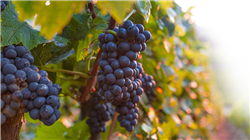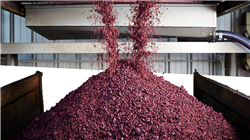University certificate
Accreditation/Membership
The world's largest faculty of nutrition”
Introduction to the Program
With this Master's Degree you will master the specific protocols in winemaking and delve into its intricacies in just 12 teaching months”

The growing technological revolution brings with it a speed in natural processes that corrupts their traditional development. The wine industry is one of the sectors that must take the greatest care when developing their products, since from maceration and fermentation to bottling, they require demanding protocols that must take into account enological microbiology. The experts in this area, who will analyze its composition, are highly qualified nutritionists with a strong background in the application of new optimal techniques for the study of its properties.
For this reason TECH has developed a Master's Degree that addresses the compounds of grapes and wine, as well as the multiple analytical techniques that include the chemical composition of the grape must, organic acids, polyphenols and sugars, among many other constituent elements. This program is aimed at nutrition professionals and other specialists who wish to learn more about the aromas and volatile compounds in wine, as well as its structure and classification according to each typology, whether white, rosé or red.
In addition, TECH has developed the qualification in a 100% online option to enable working professionals who are committed to digital learning, allowing them to balance their studies with their private life, in order to be able to attend the program. In turn, TECH has carefully selected a team of experts in Microbiology, Viticulture and Enology to develop and teach the knowledge of this Master's Degree. In this way, from the first content module, students will enjoy audiovisual and additional materials that make the program a unique and enriching experience with which to prepare themselves to develop their functions as nutritionists in the winemaking sector.
Distinguish yourself in a booming sector and join what is considered to be the technological solution of the future in medical development”
This Master's Degree in Enology contains the most complete and up-to-date scientific program on the market. The most important features include:
- The development of practical cases presented by experts in Nutrition and Biological Sciences
- The graphic, schematic, and practical contents with which they are created, provide scientific and practical information on the disciplines that are essential for professional practice
- Practical exercises where the self-assessment process can be carried out to improve learning
- Its special emphasis on innovative methodologies
- Theoretical lessons, questions to the expert, debate forums on controversial topics, and individual reflection work
- Content that is accessible from any fixed or portable device with an Internet connection
Join the change in the technological evolution of nitrogen compounds and increase your skills in the generation of amino acids"
The program’s teaching staff includes professionals from the sector who contribute their work experience to this educational program, as well as renowned specialists from leading societies and prestigious universities.
The multimedia content, developed with the latest educational technology, will provide the professional with situated and contextual learning, i.e., a simulated environment that will provide immersive education programmed to prepare for real situations.
This program is designed around Problem-Based Learning, whereby the professional must try to solve the different professional practice situations that arise during the course. For this purpose, the students will be assisted by an innovative interactive video system created by renowned and experienced experts.
Boost your career in grape nutritional research in the winemaking process"

Expand your knowledge in the conservation of the nutritional value of grapes, through enological applications such as liquid chromatography"
Why study at TECH?
TECH is the world’s largest online university. With an impressive catalog of more than 14,000 university programs available in 11 languages, it is positioned as a leader in employability, with a 99% job placement rate. In addition, it relies on an enormous faculty of more than 6,000 professors of the highest international renown.

Study at the world's largest online university and guarantee your professional success. The future starts at TECH”
The world’s best online university according to FORBES
The prestigious Forbes magazine, specialized in business and finance, has highlighted TECH as “the world's best online university” This is what they have recently stated in an article in their digital edition in which they echo the success story of this institution, “thanks to the academic offer it provides, the selection of its teaching staff, and an innovative learning method aimed at educating the professionals of the future”
A revolutionary study method, a cutting-edge faculty and a practical focus: the key to TECH's success.
The most complete study plans on the university scene
TECH offers the most complete study plans on the university scene, with syllabuses that cover fundamental concepts and, at the same time, the main scientific advances in their specific scientific areas. In addition, these programs are continuously being updated to guarantee students the academic vanguard and the most in-demand professional skills. In this way, the university's qualifications provide its graduates with a significant advantage to propel their careers to success.
TECH offers the most comprehensive and intensive study plans on the current university scene.
A world-class teaching staff
TECH's teaching staff is made up of more than 6,000 professors with the highest international recognition. Professors, researchers and top executives of multinational companies, including Isaiah Covington, performance coach of the Boston Celtics; Magda Romanska, principal investigator at Harvard MetaLAB; Ignacio Wistumba, chairman of the department of translational molecular pathology at MD Anderson Cancer Center; and D.W. Pine, creative director of TIME magazine, among others.
Internationally renowned experts, specialized in different branches of Health, Technology, Communication and Business, form part of the TECH faculty.
A unique learning method
TECH is the first university to use Relearning in all its programs. It is the best online learning methodology, accredited with international teaching quality certifications, provided by prestigious educational agencies. In addition, this disruptive educational model is complemented with the “Case Method”, thereby setting up a unique online teaching strategy. Innovative teaching resources are also implemented, including detailed videos, infographics and interactive summaries.
TECH combines Relearning and the Case Method in all its university programs to guarantee excellent theoretical and practical learning, studying whenever and wherever you want.
The world's largest online university
TECH is the world’s largest online university. We are the largest educational institution, with the best and widest online educational catalog, one hundred percent online and covering the vast majority of areas of knowledge. We offer a large selection of our own degrees and accredited online undergraduate and postgraduate degrees. In total, more than 14,000 university degrees, in eleven different languages, make us the largest educational largest in the world.
TECH has the world's most extensive catalog of academic and official programs, available in more than 11 languages.
Google Premier Partner
The American technology giant has awarded TECH the Google Google Premier Partner badge. This award, which is only available to 3% of the world's companies, highlights the efficient, flexible and tailored experience that this university provides to students. The recognition as a Google Premier Partner not only accredits the maximum rigor, performance and investment in TECH's digital infrastructures, but also places this university as one of the world's leading technology companies.
Google has positioned TECH in the top 3% of the world's most important technology companies by awarding it its Google Premier Partner badge.
The official online university of the NBA
TECH is the official online university of the NBA. Thanks to our agreement with the biggest league in basketball, we offer our students exclusive university programs, as well as a wide variety of educational resources focused on the business of the league and other areas of the sports industry. Each program is made up of a uniquely designed syllabus and features exceptional guest hosts: professionals with a distinguished sports background who will offer their expertise on the most relevant topics.
TECH has been selected by the NBA, the world's top basketball league, as its official online university.
The top-rated university by its students
Students have positioned TECH as the world's top-rated university on the main review websites, with a highest rating of 4.9 out of 5, obtained from more than 1,000 reviews. These results consolidate TECH as the benchmark university institution at an international level, reflecting the excellence and positive impact of its educational model.” reflecting the excellence and positive impact of its educational model.”
TECH is the world’s top-rated university by its students.
Leaders in employability
TECH has managed to become the leading university in employability. 99% of its students obtain jobs in the academic field they have studied, within one year of completing any of the university's programs. A similar number achieve immediate career enhancement. All this thanks to a study methodology that bases its effectiveness on the acquisition of practical skills, which are absolutely necessary for professional development.
99% of TECH graduates find a job within a year of completing their studies.
Master's Degree in Enology
Enology is a fascinating discipline dedicated to the study and science of wine. It addresses a wide range of aspects related to wine, beginning with knowledge of grape varieties and their influence on wine characteristics, and extending to cultivation, harvesting, and grape selection techniques, while understanding how factors such as climate, soil, and viticulture affect the final result in the glass. If you are a wine enthusiast and wish to acquire specialized knowledge in this field, the Master’s Degree in Enology developed by TECH Global University is the ideal program for you. This online degree provides solid theoretical and practical training in all areas related to wine production, analysis, and management. With guidance from enology experts and industry professionals, you will develop advanced technical and scientific skills that will enable you to stand out in the wine industry.
Become an expert in enology
Through a 100% online educational model, we offer you the opportunity to obtain an internationally recognized degree, with access to self-paced classes, innovative multimedia content, and tutoring from an experienced faculty. Throughout the program, you will explore vinification processes in depth, from the selection and care of raw materials to fermentation and aging techniques. You will learn about different wine styles, the characteristics of grape varieties, and specific enological practices that influence wine quality and flavor. In addition, you will acquire specialized knowledge in sensory analysis, enabling you to appreciate and evaluate the organoleptic quality of different wines. You will also become familiar with tasting techniques and learn to identify aromas, flavors, and common defects in wines, positioning you as an expert in wine tasting and evaluation.







